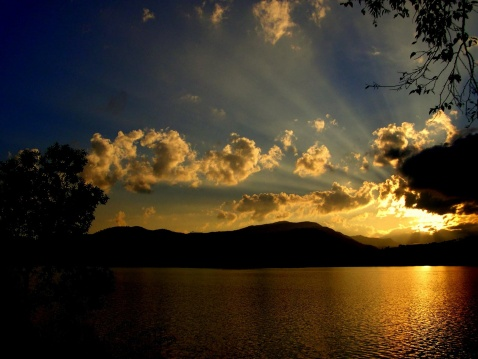To me, my home town Shillong will always remain a picture post card viewed through my cinematic lenses. It is picturesque, lovely and supinely beautiful. It lies on and with crescent of hills. That is why the British called it a hill station.
About twelve years back I wrote a collection of poems: 'A Hill Station And Other Poems', my tribute to the place where I was born and reared up in. Traces of colonialism notwithstanding I still like this epithet of a Hill Station. These hills have infused my life with a poetics, which I can only understand, they gyrate in my body and soul, their sights, smells and sounds, reverberate in consciousness.
 |
| Shillong used to be the capital of Assam. In 1972, the state of Assam was split as Assam and Meghalya. Thereafter Shillong became the first capital of the newly formed State of Meghalaya. At 1496 meters above sea level, Shillong boasts of pine covered hills with a milder climate compared to the tropical India. There are several waterfalls and lakes in Shillong. |
The hills are my very being. Shillong has taught me what Nature can do to a person. The hills surrounding this town are alive every moment. In rain washed monsoons their heads droop- an anthropomorphic twist. To me they are as human as I am. Then, those trees which add coloration to these luminous hills.
When I saw the movie: 'The Sound Of Music' as a child the song "The Hills Are Alive' resonated with a force, in my infantile mind.This resonance, an almost quiver of truth still stays with me - part memory, part consciousness, part melody, part nostalgia.
My first memories of Shillong are the winter season, getting up bleary eyed, rather late and then wallow in sunshine, with golden oranges to give company, playing cricket, my father's patients in his pharmacy, and then suddenly the glowing sun would vanish ether like. Everything seemed so moribund and dead then. The pangs of the cold we dreaded. Mufflers, jackets and gloves were our protection to combat this searing cold, and then of course the fire place in the evenings.
Shillong went through a crisis in the eighties and nineties due to ethnic strife. The Shillong that I knew received a blow to its quiescent non interfering ways. It has come out of such crises, its rapid urbanization has pained us to see its pristine beauty tarnished, with the emergence of 'concrete jungles'. But that does not deter my love for it, its opiate effect, its somnolence, much of it is now memory, but memory lives, breathes and never dies. I am a diehard "Shillong-ite'.
